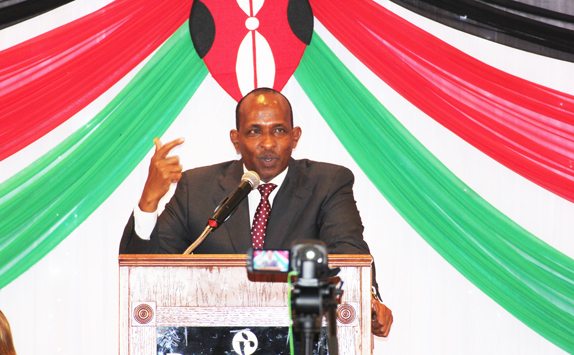Last April, the State of Arizona passed bill SB1070, probably the toughest immigration law targeting undocumented immigrants ever enacted in the nation. This law allows state officials to inquire into the immigration status of any person based upon “reasonable suspicion” that the person is undocumented. The bill literally reads: “For any lawful contact made by a law enforcement official or agency of this state or a county, city, town or other political subdivision of this state where reasonable suspicion exists that the person is an alien who is unlawfully present in the United States, a reasonable attempt shall be made, when practicable, to determine the immigration status of the person.” The new Arizona law revitalized the immigration reform debate, which was sidetracked by the economic downturn, health care overhaul and other priorities.
The major sponsor of the bill was Republican State Senator Russell Pearce, who has long been one of Arizona’s most vocal opponents of illegal immigration. Pearce claims that the SB1070 has been the law of the land for many, many years, just ignored by the feds and most local politicians. He says that the law simply allows law enforcement to do the job we hired them to do – enforce the law. He believes that the law protects Americans and jobs taken from Americans. Further, Pearce claims that the law would prevent home invasions, kidnappings, carjacking, molestations, rapes, drug smuggling, and human trafficking. He also believes that the law would save billions of dollars in education, health care and incarceration – services currently provided to undocumented immigrants.
Since the enactment of Arizona’s draconian immigration law, at least 10 states – including Minnesota – are considering the enactment of similar state immigration measures. Last May, Republican State Representative Steve Drazkowski introduced bill HF3830, which mirrors the Arizona law. Drazkowski’s legislation would make it mandatory for law enforcement officers to determine the immigration status of anyone who is stopped or arrested and could possibly be foreign-born. Drazkowski sponsored this bill because “the safety and security of the people is the first function of government.” He also supports the law because Minnesota taxpayers pay $200 million dollars per year to educate, incarcerate and medicate undocumented immigrants.
Opponents, however, point out that these kinds of laws are unconstitutional and are difficult to implement without resorting to racial profiling. They note that the Arizona law is unconstitutional because it is pre-empted by federal law and threatens equal protection. First, the law is pre-empted by federal law because the role of controlling immigration and enforcing immigration laws has fallen to the federal government, not the states. Second, the Constitution’s equal protection clause forbids the government from differentiating between anyone in the United States – including undocumented foreign-born people – on the basis of race. Although the new law on its face does not make racial distinctions, its supporters have not articulated any other grounds for suspecting that someone is an undocumented resident. The law essentially allows law enforcement officers to stop and question any Hispanic, African, Middle Eastern, Asian or foreign-looking person about his or her immigration status. Furthermore, the bill’s impact on crime rates is questionable because, as Arizona Republican State Representative Bill Konopnicki stated, there is little evidence that undocumented immigrants commit more crimes than the rest of the population.
Several lawsuits have been filed against Arizona’s immigration law SB1070 based on the mentioned constitutional grounds and civil rights protections such as due process by different civil rights organizations. Even the federal government is strongly opposed to the Arizona immigration law. Attorney General Eric Holder in an interview with NBC said, “We are considering all of our options. One possibility is filing a lawsuit.” Additionally, Holder told ABC “I think we could potentially get on a slippery slope where people will be picked on because of how they look as opposed to what they have done, and that is, I think, something that we have to try to avoid at all costs.”
Furthermore, there has been much opposition to the Arizona law locally and nationally. In the last two months, there have been numerous coast-to-coast protests. Locally, St. Paul Mayor Chris Coleman ordered that no city officials should travel to conferences in Arizona because of the SB1070 immigration bill. Coleman said, “It would be immoral to not stand up in the face of a piece of legislation that is rooted in hate and fear. We are a country of immigrants – and SB1070 is an affront to our constitution and the values we hold dear as Americans. It’s not worthy of who we are as a people, and it’s certainly not worthy of the investment of any city dollars being spent in Arizona.”
The biggest flaw of the Arizona law is the potential human rights violations, discrimination and xenophobia that could result from a requirement that officers act upon a perceived ethnicity or an accent. Simply “looking’ Latino, African, Middle Eastern, or Asian or speaking with an accent could be the sole reason someone is questioned and asked for “papers.’ Racial profiling is unjust, undemocratic, and discriminatory. These controversial laws should serve as a call to our congressional leaders that immigration reform is urgent. The nation’s immigration issues must be addressed at the federal level.
Local and federal laws should promote equal justice and reflect the true make-up of our community. In the United States, there are more than 12 million undocumented immigrants whose immigration status should be somehow regulated because they fuel our economy and have spouses, children, and parents who are United States citizens. There needs to be a workable solution that protects the nation’s borders, does not call for mass deportations, and allows undocumented immigrants to come out of the shadows and integrate into society within the bounds of the law.
On July 1, President Barack Obama gave his first speech on comprehensive immigration reform since he became president. He stated, “In sum, the system is broken. And everybody knows it. Unfortunately, reform has been held hostage to political posturing and special-interest wrangling – and to the pervasive sentiment in Washington that tackling such a thorny and emotional issue is inherently bad politics.” President Obama called for bipartisan support to bring about comprehensive immigration reform that cannot pass without Republican votes. He added, “The only way to reduce the risk that this effort will again falter because of politics is if members of both parties are willing to take responsibility for solving this problem once and for all.” With Arizona’s draconian new law gaining lawmaker’s attention, there is renewed hope for the federal government to fix our broken immigration system.
Nothing in this article should be taken as legal advice for an individual case or situation. The information is intended to be general and should not be relied upon for any specific situation. For legal advice, consult an attorney experienced in immigration law.
About Igbanugo Partners International Law Firm
Igbanugo Partners Int'l Law Firm is based in Minneapolis, Minnesota. It focuses on (1) U.S. immigration law and (2) international trade law in Sub-Saharan Africa.
- Web |
- More Posts(71)








You state “Simply “looking’ Latino, African, Middle Eastern, or Asian or speaking with an accent could be the sole reason someone is questioned and asked for “papers.’ ” But the law would also require asking for documentation of Germans, Russian, Austrailian, Canadians. Law enforcment also would only request this information after an infraction has already occurred. Not really seeing what the issue is.
deport them all period. no one should be left, all of that 11 to 20 million you call illegal people should be put to the ocean and let them find their way to their home country. include those illegal people like “ME” who pays taxes who give contribution to social security even if we know we dont have any security at all and will never have access to our contribution and let me tell all of you that we work hard for the money we earned and don’t tell us that we stealling from you.
In each of the past four weeks I have been privileged to attend a luncheon in which an immigrant from Nigeria, Hungary, Cameroon and the Philippines has presented about their country of birth and about their path to the U.S. There will be more luncheons in the coming weeks. I commend this writer for speaking clearly and addressing the issues without resorting to the common epithets so easily spoken, even by some of our leaders in government, with no intent to address the issue meaningfully. The thread of world history has led to this time. It is is humanity that stands at another moment of decision. Any action will have consequences, both intended and not, and the current is moving ever more swiftly.
Comments are closed.